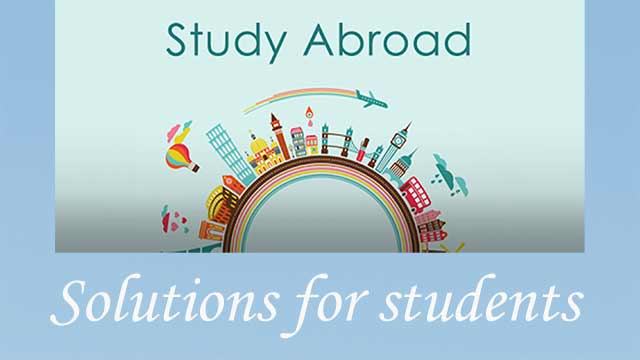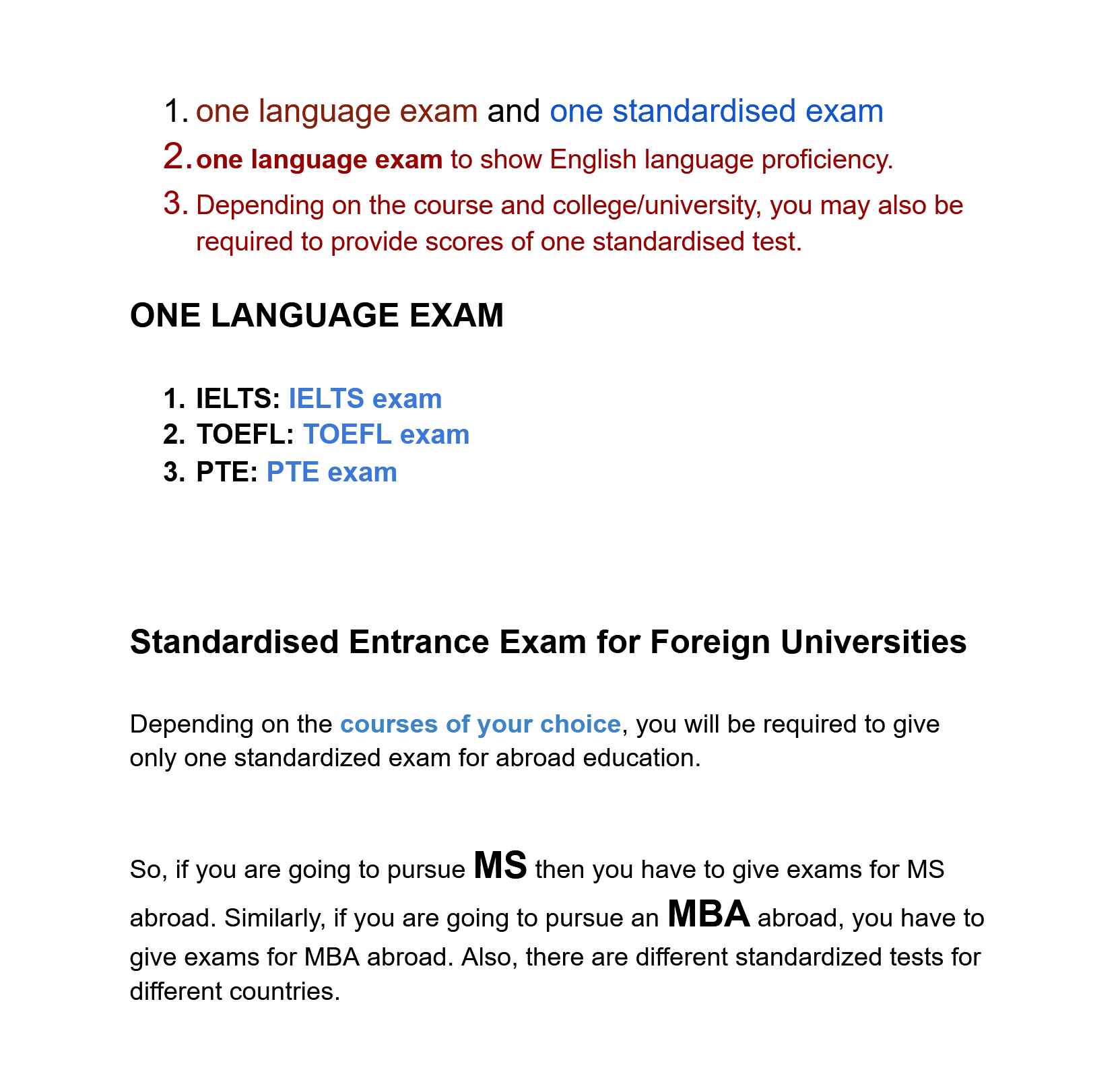How to Study Abroad: Best Solutions For Students

A list of the most frequently asked questions about studying abroad. Learn about where to study abroad, when to study abroad, how to apply, admission criteria, obtaining a student visa, tuition costs and funding, discovering study abroad scholarships, and more.
Students who are looking to be qualified for higher education overseas must first pass One language exam such as the IELTS, TOEFL, and PTE, as well as standardized exams such as the SAT, GMAT, GRE, and ACT. Statistics show that many Indians have travelled to countries such as the United States of America (USA), Canada, Australia, the United Kingdom (UK), and Germany for educational purposes over the years. It goes without saying that students interested in studying abroad will need to take language and standardized examinations, which will vary based on the course requirements and the candidate's preferred university.
Why Study Abroad?
There are many reasons why study abroad programs are becoming so popular. For most international students, learning new languages, appreciating different cultures, overcoming the obstacles of living in another country, and gaining better experiences and knowledge of the globe are all benefits of studying abroad. All of these qualities are sought by modern organisations when recruiting, and they will only grow more essential in the future. For some, leaving home and stepping into the unknown is a frightening concept, yet studying abroad is an exhilarating challenge that frequently leads to better job possibilities and a better grasp of how the world works.
To maintain a good work/life balance, choose a study destination based on your own interests as well as the country's academic reputation. Students have been able to realise their goal of studying abroad thanks to inexpensive tuition costs and a low cost of living, as well as education loans and grants. With higher quality of facilities, renowned teachers, a favourable student-teacher ratio, a friendly environment and being eligible to work part-time, they are able to pay rent and buy groceries with their own hard earned money. Studying abroad has become a popular choice among the country's youth. Instead of focusing on education, leading study abroad destinations have created attractive post-study career alternatives and job possibilities for foreign students, resulting in a high return on investment. Studying abroad ensures not only personal improvement but also a higher level of life for the individual.
Where should I study abroad?
There's undoubtedly a solid reason why the majority of the world wants to spend their study abroad time in one of the 13 nations listed below. These are the countries to study abroad if you want to have a good time with your education pursuits, whether it's because of a great price-to-service ratio, the personality of the locals, world-renowned education standards, or a special landscape you can't find anywhere else on the planet.
- Italy
- Spain
- England
- France
- Germany
- Australia
- USA
- Japan
- China
- Argentina
- Canada
- New Zealand
- Singapore
Which country should I choose to study abroad?
One of the best picks on my interest and research, I recommend you to reach this ultimate place.
- Germany
- Canada
- United Kingdom (England)
- USA
- Australia
How do I get started?
To avoid any last-minute problems, students should always apply far ahead of the deadline. Students should confirm the test requirements with their college/university and course.
They should only apply for exams that are accepted by their preferred university.
If a candidate has a choice between two examinations, he or she must choose the one that he or she prefers. The amount of time needed to prepare for these exams will be determined on your current English language competence. Before the exam, candidates may need 2 to 4 months of preparation.
Need a student visa, remember that in most cases you won’t be able to apply for one until you have received a letter of acceptance from your chosen university. Each stage can take several months, so allow as much time as possible.
What are the entry requirements for study abroad programs?
The best approach to proceed is applying for your application as soon as feasible.
After all, the sooner you get accepted into a university, the sooner you can plan your travel.
When Applying, you will need to show all the documents required by the institutes or colleges. Most Students apply after High school education (after 12th std.); so you will need to give at least one language exam such as IELTS, TOEFL or PTE. Then, submit your academic records to the preferred universities for Intake.

One Language Exam and One Standardized Exam
Example: September/October Intake Application dates will vary per institution, but for courses beginning in the autumn (September/October), applications will usually be accepted from early in the year (January/February) through mid-year (June/July).